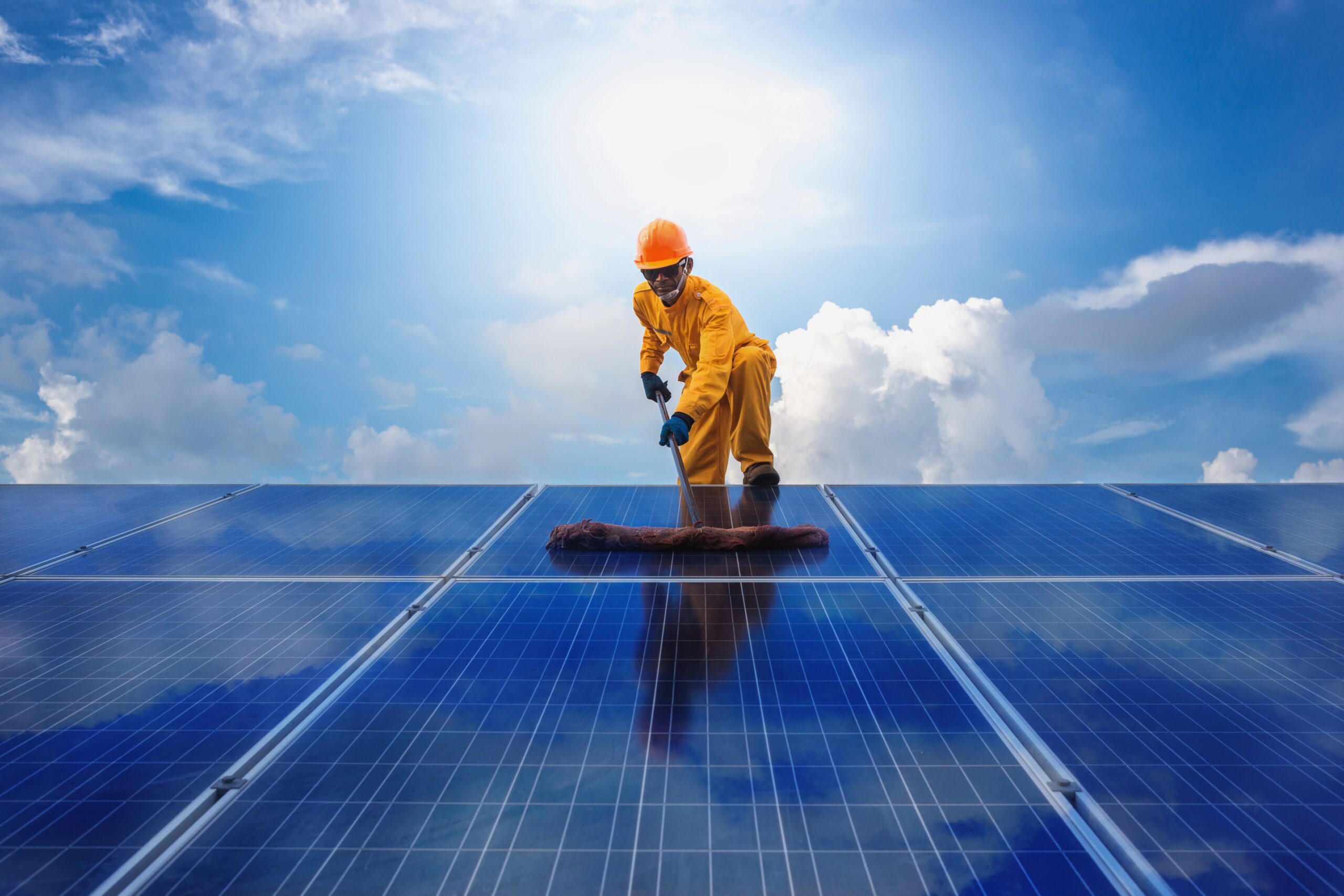In the pursuit of a greener planet and sustainable living, solar panels have become a beacon of renewable energy solutions. Their ability to convert sunlight into electricity is not only innovative but essential in our fight against climate change.
However, the efficiency of these solar marvels is not solely dependent on technological advancements; it also hinges on the regularity and quality of maintenance, particularly cleaning. This blog post delves into the importance of keeping solar panels clean, outlining how such upkeep directly impacts their productivity and longevity.
The Impact of Dirt and Debris on Solar Efficiency
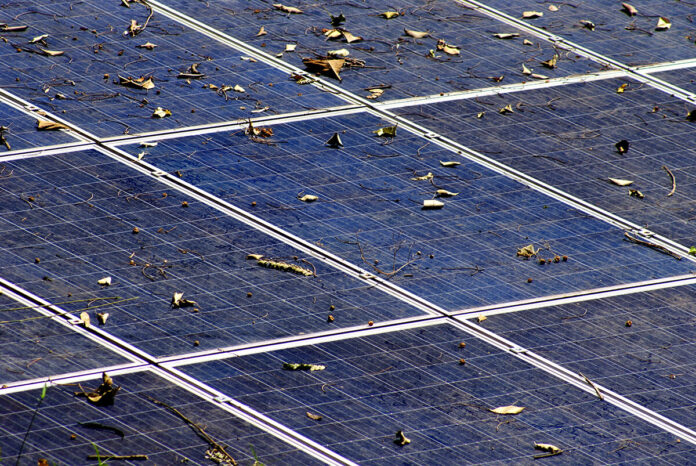
Cleanliness might seem like a minor concern when it comes to high-tech devices. However, dirt, dust, pollen, and other particulates can significantly reduce its effectiveness.
When these particles accumulate on the surface, they obstruct sunlight, preventing it from reaching the solar cells. This blockage means less light is converted into electricity, directly impacting the energy output.
Beyond the immediate reduction in efficiency, long-term neglect can lead to persistent shading of the cells, which may cause a phenomenon known as hot spots.
Hot spots occur when certain panel areas overheat, leading to potential damage and further decreased efficiency. Regular cleaning prevents these issues by ensuring that the maximum amount of sunlight reaches the solar cells.
Moreover, the geographical location can exacerbate the problem. Areas with high levels of dust, agricultural particulates, or bird droppings will significantly decrease efficiency if regular cleaning is not maintained. Therefore, understanding the local environment is crucial in scheduling cleaning to maintain optimal performance.
The Financial Repercussions of Neglected Solar Panels
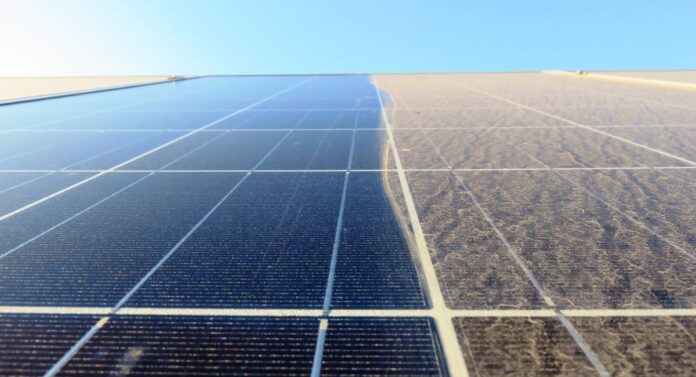
The implications of dirty solar panels extend beyond just decreased efficiency; they also have a tangible impact on the financial return of solar investments. When they underperform due to a lack of cleaning, they generate less electricity.
For homeowners or businesses relying on solar power to reduce energy bills or for income through feed-in tariffs, this reduction can lead to significant financial losses over time.
Investing in solar energy is not just about contributing to a sustainable future but also about the financial savings it can provide. When the efficiency decreases, so does the return on investment. Regular cleaning ensures that panels operate at peak efficiency, maximizing the financial benefits of solar energy.
Best Practices in Solar Panel Cleaning
When it comes to cleaning solar panels, there are best practices to ensure safety and maximize efficiency. It’s important to follow the manufacturer’s recommendations for cleaning solar panels to prevent any damage. Most of the time, cleaning them with water and a soft brush can remove the majority of surface dirt without risking damage to the panels.
For those who prefer a more hands-off approach, automated cleaning systems, such as robotic cleaners or sprinkler-like systems, can provide regular cleaning without the need for physical labor. These systems can be particularly beneficial in large-scale solar installations or in areas where manual cleaning is challenging.
Understanding the Environmental Impact of Cleaning
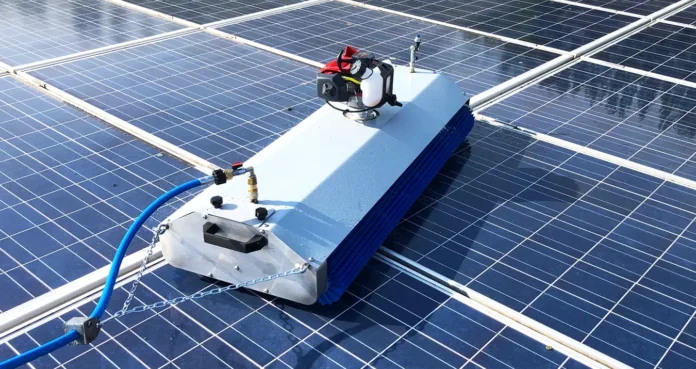
Regular cleaning is not just about maintaining efficiency; it’s also about considering the environmental impact of the cleaning processes themselves. Utilizing eco-friendly cleaning methods and materials is paramount in ensuring that the ecological footprint of solar energy remains minimal.
When these agents that are harmful to the environment are used, they can run off and negatively affect the surrounding soil and waterways, undermining the sustainable nature of solar energy.
The choice of cleaning materials is crucial. Biodegradable soaps and cleaners reduce the risk of environmental contamination, ensuring that the process of maintaining solar energy systems doesn’t counteract their environmental benefits.
Safety Measures in Cleaning
Safety should always be a priority when it comes to maintaining and cleaning solar panels, especially for those installed in high or hard-to-reach places. The risk of falls and injuries can be significant without proper safety measures and equipment.
Therefore, it’s important for individuals or companies undertaking the washing process to be well-versed in safety protocols and to use appropriate safety gear, such as harnesses, non-slip shoes, and helmets.
For residential owners, it might be more prudent to hire professional services that specialize in them. These professionals not only have the necessary equipment and expertise to clean the panels safely and effectively but also are trained to identify and mitigate risks.
By outsourcing this task, homeowners can avoid the dangers associated with rooftop work and ensure that their panels are maintained properly.
Seasonal Considerations in Maintenance
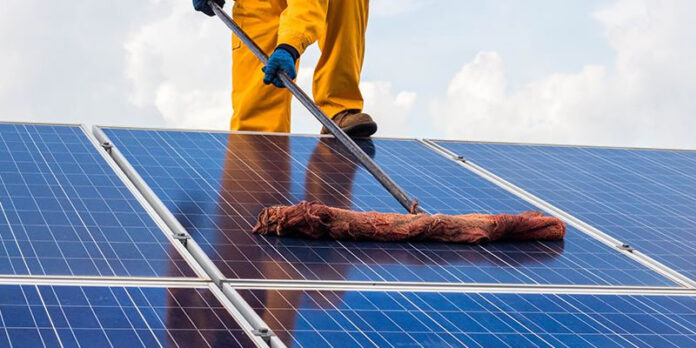
Seasonal changes have a significant impact on the maintenance needs of solar panels. In areas with seasonal weather patterns, the approach to cleaning and maintenance may need to be adjusted based on the time of year.
For instance, autumn often brings increased debris from falling leaves and twigs, requiring more frequent cleanings to prevent blockages and shading. Similarly, in snowy regions, winter demands prompt removal of snow to maintain efficiency and prevent potential damage from the weight of the snow.
Spring can bring pollen, bird droppings, and other natural debris, which can adhere more stubbornly to them than dust or dirt.
This season may require more thorough washing to remove these types of contaminants. Furthermore, spring is often an ideal time for a comprehensive annual check-up of the system to ensure that it is in optimal condition for the high-production summer months.
Summer, while being the peak season for solar energy production, can also bring challenges such as dust storms or bird activity, which can significantly soil the panels.
Regular monitoring and timely cleanings are essential during this period to ensure that they operate at maximum efficiency.
Additionally, the higher temperatures of summer can exacerbate the effects of soiling, making effective washing even more critical.
Conclusion
In conclusion, the productivity and longevity of solar panels are significantly influenced by their cleanliness. Regular maintenance ensures that panels remain efficient, extends their lifespan, and maximizes the financial return on investment.
By understanding the importance of cleaning and implementing best practices, individuals and businesses can contribute to a sustainable future while reaping the benefits of solar energy.

